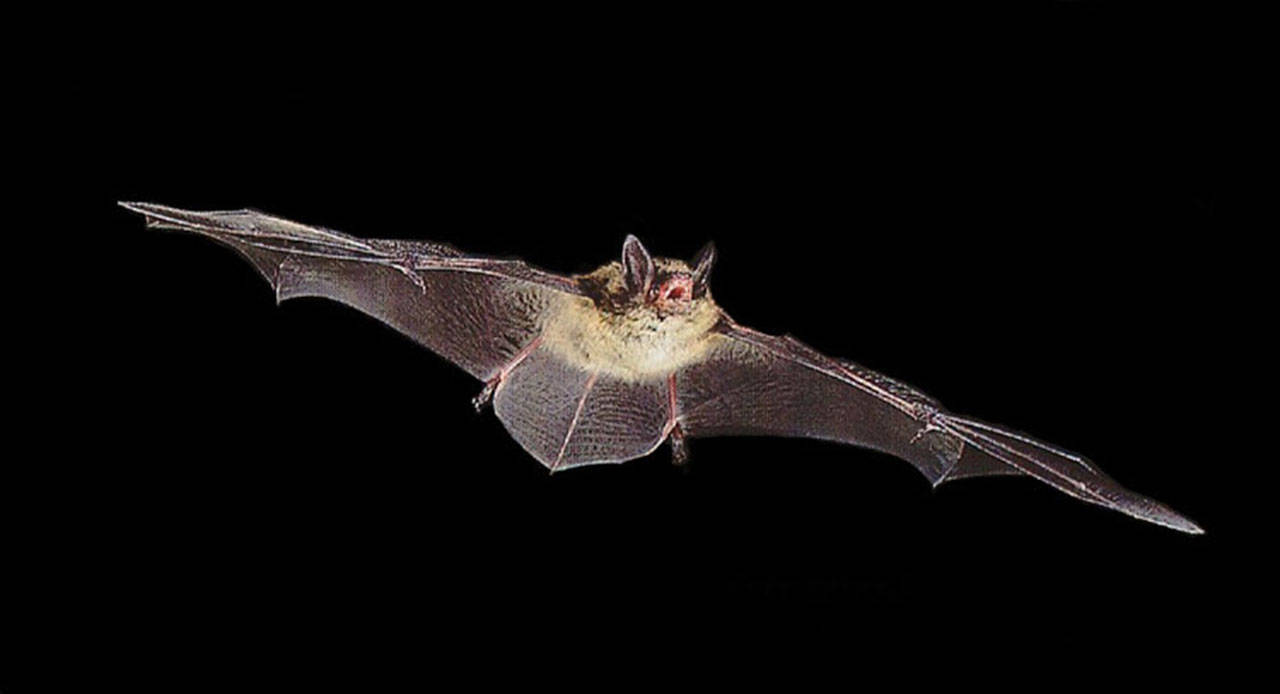We recently shared information about an investigation into rabies exposure from a rabid bat on the University of Washington campus. We’ve already seen nearly twice as many exposures to bats this year compared to this time last year, and as the weather gets warmer, we are more likely to see more.
Bats are an important part of our ecosystem, but it’s very important to leave them alone. Specifically:
- Keep bats outside. This is the best case scenario for you and for the bat. To keep bats out, make sure all open doors and windows have screens that will prevent the bat from flying inside your home and seal up all possible points of entry.
- If you find a bat in your home, notify Public Health. If you find a bat in your home, immediately close doors to the room to contain it, if possible, and try to maintain awareness of its location. Call Public Health at 206-296-4774 so that we can determine whether it needs to be safely captured and tested for rabies infection or released outside. Watch our video for instructions on how to safely capture a bat.
- Bats outside should not be caught unless they have been in direct contact with a person or a pet. Never handle a bat with your bare hands. Do not release a live bat or throw out a dead bat that has bitten or scratched, or had direct contact with a person or pet; bats that have had contact with people or animals should be tested for rabies.
- Don’t touch bats. Bats do not usually come into contact with people because they are active at night. If you see a bat during the day, and it’s acting strangely – struggling to fly or lying on the ground – the bat could potentially be infected with rabies. Leave that bat alone. If you find a dead bat in a public place, call Public Health at 206-296-4774 or your city’s animal control office. If you find a dead bat on your property, use heavy gloves (like leather work gloves), then pick it up or scoop it up with a dust pan or shovel. Put it in sealed container or jar or place it in a plastic bag that is within another heavy-weight plastic bag, such as a zip-lock bag. Store it in a cooler or refrigerator until you have notified Public Health.
- If you touch the bat (or think you or your pet or child could have touched the bat), call Public Health immediately at 206-296-4774. Anyone who touched or had contact with the bat or its saliva could be at risk of getting rabies, which is almost always fatal once symptoms begin. Fortunately, rabies can be prevented if treatment is given before symptoms appear, so quickly identifying anyone who has had contact is important. If you think you or your children or pets may have touched or picked up a bat, call Public Health immediately at 206-296-4774.
-
If your pet has had contact with a bat, it’s also very important to try to capture the bat, if possible, so that it can be tested for rabies. Dogs and cats that have had contact with a bat should get a rabies booster vaccine right away, even if they are current on their rabies vaccination. Testing can confirm whether your animal needs to be quarantined.
- Keep pets protected. Vaccinate your pets to protect them against rabies. In King County, all dogs, cats and ferrets are required to have rabies vaccinations by the time they are four months of age and then have rabies vaccination kept up to date according to a veterinarian’s instructions. Also, keep your pets on leashes in public spaces so that you can keep them away from sick wildlife.
For more information, visit kingcounty.gov/bats and download our fact sheet.


